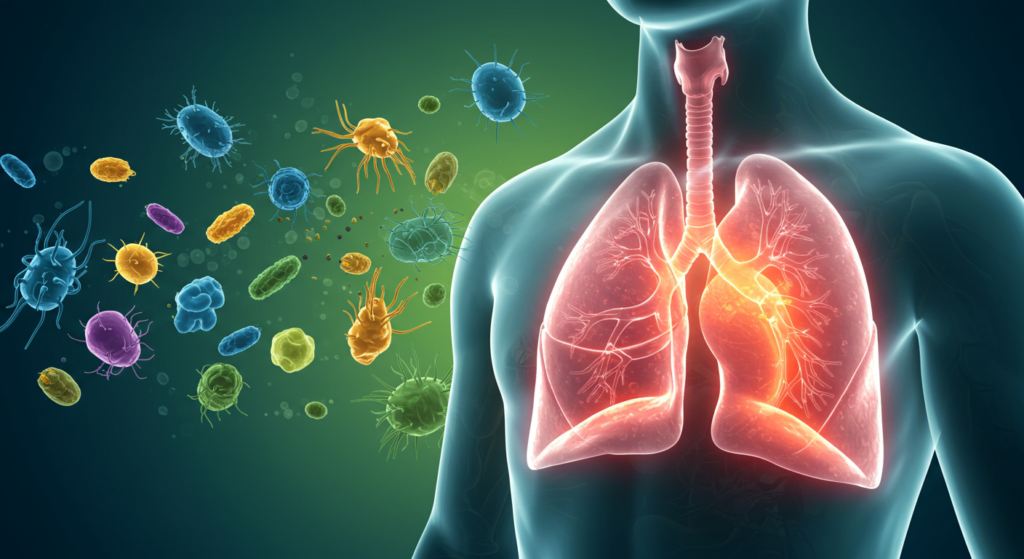
Asthma and allergies often go hand in hand. Many people with asthma experience attacks triggered by allergens like pollen, dust mites, pet dander, and mold. These allergic reactions cause airway inflammation, wheezing, and difficulty breathing. Learning how to manage allergies is key to preventing asthma attacks. If you or a loved one struggle with asthma and allergies, working with an asthma specialist or consulting an online asthma doctor can help you create a personalized prevention plan.
How Do Allergies Trigger Asthma?
Allergic asthma happens when the immune system overreacts to allergens. This leads to airway inflammation, making it hard to breathe.
1. The Immune Response
- When allergens enter the airways, the immune system releases histamines.
- This causes swelling, excess mucus, and tightening of airway muscles.
2. Common Allergy Triggers
- Pollen (from trees, grass, and weeds)
- Dust mites (tiny insects in bedding and carpets)
- Pet dander (shed skin flakes from cats and dogs)
- Mold spores (found in damp areas)
- Cockroach droppings (a common allergen in urban areas)
Understanding what triggers your asthma can help you take steps to avoid attacks.
The Best Ways to Prevent Asthma Attacks Due to Allergies
1. Identify and Avoid Your Triggers
One of the most effective ways to prevent asthma attacks is to avoid allergens that cause symptoms.
How to Reduce Indoor Allergens:
- Use HEPA air purifiers to remove allergens from the air.
- Wash bedding weekly in hot water to kill dust mites.
- Keep pets out of bedrooms and living spaces.
- Fix leaks to prevent mold growth.
- Vacuum carpets and furniture using a HEPA-filter vacuum.
Managing Outdoor Allergies:
- Check daily pollen counts before going outside.
- Wear a mask during high pollen seasons.
- Shower and change clothes after spending time outdoors.
2. Use Allergy Medications and Asthma Treatments
If avoiding triggers isn’t enough, medications can help control symptoms.
Antihistamines and Allergy Medications
- Over-the-counter antihistamines like Claritin and Zyrtec can reduce allergic reactions.
- Nasal sprays like Flonase help control nasal inflammation and congestion.
- Allergy shots (immunotherapy) can help reduce sensitivity to allergens over time.
Asthma Medications from an Asthma Specialist
- Quick-relief inhalers (albuterol) stop symptoms during an attack.
- Long-term control inhalers (like corticosteroids) help prevent attacks.
- Leukotriene modifiers (Singulair) reduce allergic inflammation in the airways.
Consulting an online asthma doctor can help determine the best medication plan for you.
3. Maintain a Clean and Allergen-Free Home
A clean home reduces exposure to common allergens that trigger asthma.
Steps for Allergen Control:
- Use dust-proof pillow and mattress covers.
- Keep humidity levels below 50% to prevent mold growth.
- Remove carpets and rugs if they trap allergens.
- Wash curtains and upholstery regularly.
- Keep windows closed during high pollen seasons.
4. Boost Your Lung Health with Lifestyle Changes
Strong lungs can handle asthma triggers better. Simple lifestyle adjustments can make a big difference.
Stay Active
- Exercise strengthens lung function.
- Low-impact activities like swimming and yoga are ideal for people with asthma.
Eat an Anti-Inflammatory Diet
- Foods rich in omega-3 fatty acids (like salmon and flaxseeds) help reduce lung inflammation.
- Fruits and vegetables with antioxidants support lung health.
- Avoid processed foods that increase inflammation.
Stay Hydrated
- Drinking water helps keep mucus thin, making it easier to breathe.
5. Work with an Asthma and Allergy Specialist
If asthma attacks are frequent, it’s important to seek professional asthma and allergy specialists care.
How an Asthma Specialist Can Help:
- Perform allergy testing to identify triggers.
- Develop a personalized asthma action plan.
- Adjust medications for better symptom control.
Online Asthma Doctor Consultations
- Get expert advice without leaving home.
- Receive prescriptions and treatment plans remotely.
- Great for busy schedules and immediate care.
6. Be Prepared for Asthma Emergencies
Even with the best prevention, asthma attacks can still happen. Being prepared can save lives.
Create an Asthma Action Plan
- Know your early warning signs (coughing, shortness of breath, chest tightness).
- Keep rescue inhalers accessible at all times.
- Teach family members how to help during an asthma attack.
When to Seek Emergency Help
- If medication isn’t working.
- If breathing becomes extremely difficult.
- If lips or fingernails turn blue (a sign of low oxygen levels).
Conclusion
Preventing asthma attacks due to allergies is possible with the right approach. By identifying triggers, using medications, maintaining a clean home, and making healthy lifestyle choices, you can breathe easier. Working with an asthma and allergy specialist or consulting an online asthma doctor ensures you get the best treatment plan for long-term relief. Taking control of your asthma now will lead to a healthier and more active life!







